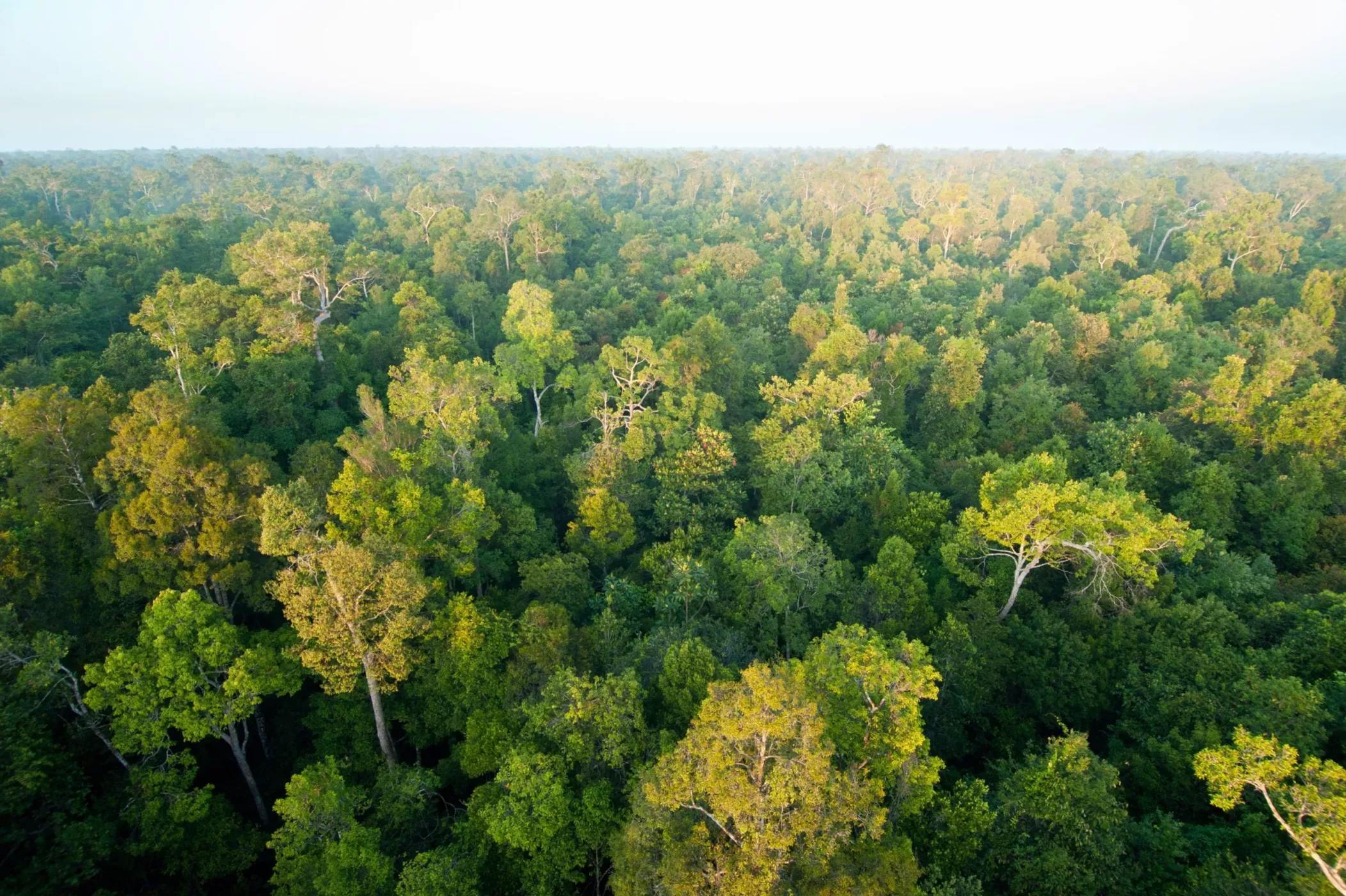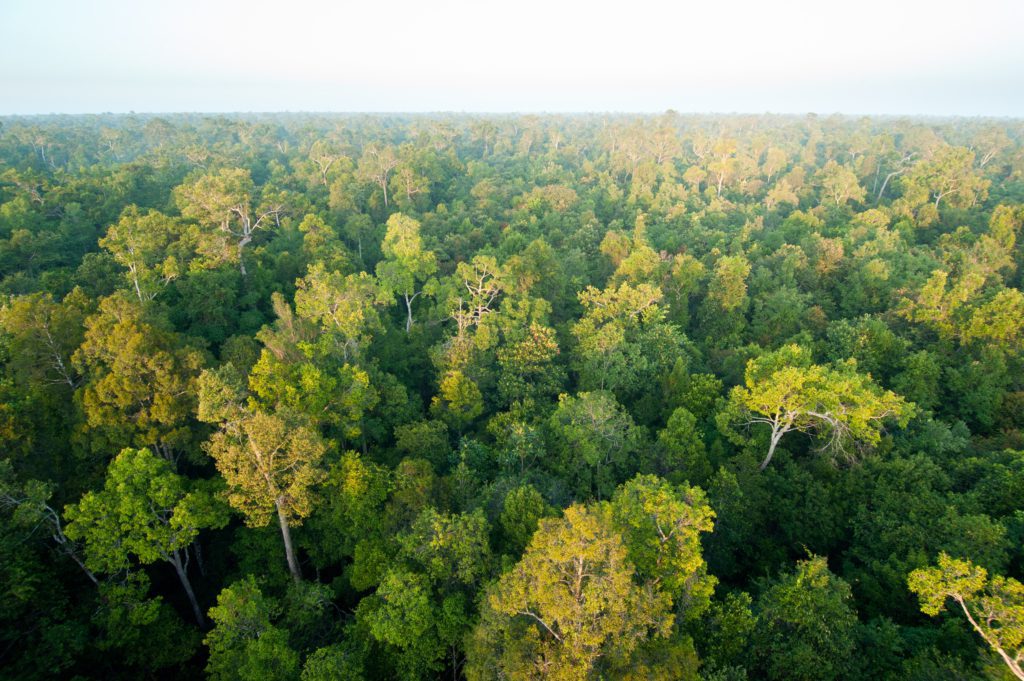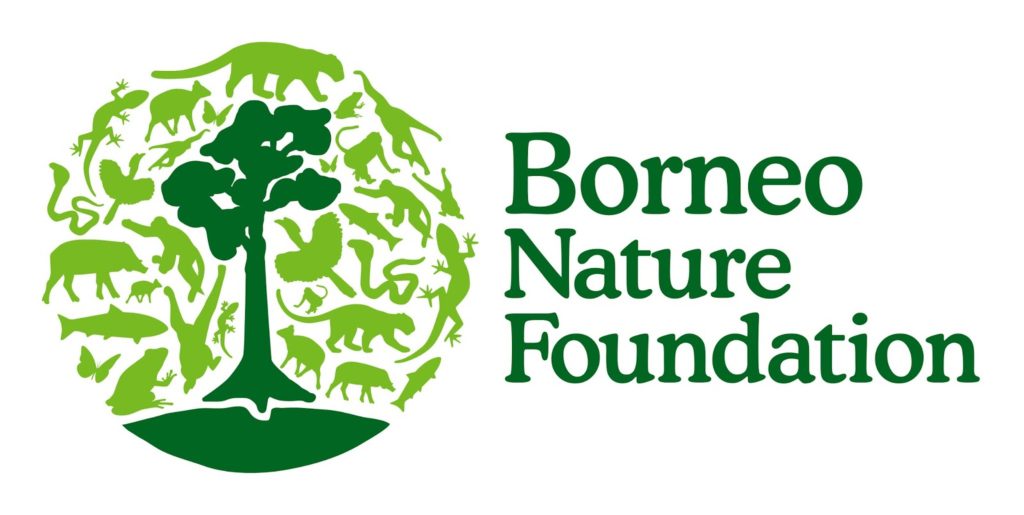Borneo
Together with Borneo Nature Foundation, rangers and villagers, we are restoring the peat swamp forest in Borneo's Sebangau National Park.

Together with Borneo Nature Foundation, rangers and villagers, we are restoring the peat swamp forest in Borneo's Sebangau National Park.
trees being planted
restoring land
people who have work & income
people in total benefiting from the project
planting period

In 2015, a massive forest fire destroyed 18,000 hectares of Sebangau National Park: more than 36,000 football pitches! On burnt lands, only ferns and grasses grow, blocking natural forest recovery. In order to help nature get going again, we are planting a mix of native trees. They provide shade, so that the ferns and grasses will disappear and the forest can recover.
Peat swamp forests are a special kind of forest. They are often submerged for long periods of time, creating a thick layer of peat. Over the centuries, this peat has sequestered huge stores of carbon. Does the forest disappear? Then huge amounts of CO2 are released into the air. A huge climate disaster, which we want to prevent by preserving and restoring the forest.
Sebangau National Park is also home to many (endangered) species of trees, plants and animals, such as proboscis monkeys, gibbons, hornbills, leopards and Borneo orang-utans. With forest restoration, we protect the habitat of these – and many other – unique plants and animals.
In recent years, we have planted 325,000 trees together with Borneo Nature Foundation and local villagers. Another 80,000 trees will be added by 2025! These are a mix of 16 different native tree species, which originally belong here. Among them are also “fruit-bearing” trees; an important food source for various animals. The plants will be planted on burnt peat soils to help natural forest recovery.
Within this project, the local population plays a crucial role. For instance, they work in the tree nurseries, plant the trees and maintain the forest. The village nurseries are managed by local families, who receive special training and resources for this from Borneo Nature Foundation. So this project not only contribute to more trees, but also to extra work and income for village families!
Families are closely involved in the project, helping in the nursery and with planting, among other things. Photos: Borneo Nature Foundation
Finally, besides planting trees, it is at least as important to preserve and protect the forest. Therefore, fire prevention is an important part of this project. Patrol teams have been appointed to scan the area for emerging fires and have the right materials to extinguish them if necessary (so far, this has not been necessary)!
In addition, Borneo Nature Foundation is building dams with the help of villagers, which prevent water from flowing out of the project area. This way, we reduce the risk of new forest fires. Moreover, wet soil is crucial for a peat swamp forest, to ensure that the peat soil can sequester and retain carbon.
Locals build dams to hold water in the area. Photos: Borneo Nature Foundation
We plant trees in the northern part of Sebangau National Park on Borneo (Central Kalimantan). The National Park has protected area status.
Our project partner is the Borneo Nature Foundation (BNF). This non-profit organisation has already been working for over 20 years on nature conservation and scientific research in the rainforests of Borneo. BNF laid the foundations for Sebangau gaining its National Park status in 2004. It is BNF’s mission to protect and preserve the nature, environment and native culture on Borneo. We are also working with the National Park Authority (which manages the protected area for the Ministry of the Environment and Forestry) and with the inhabitants of around 25 villages in the vicinity, so that they are involved in all the stages of the project.
